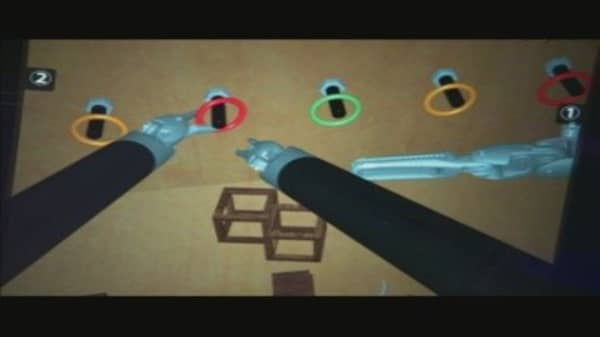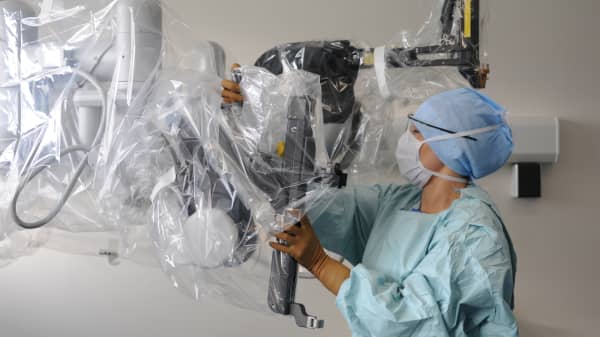One theme that emerges is an effort to prod surgeons to "convert" previously scheduled nonrobotic surgeries to robotic surgeries to meet quarterly sales quotas.
In one email, Intuitive's clinical sales director bemoaned how the "Mountain West team is forecasting about 285 procedures each week. We need to be at 345 procedures/week to close on our goal."
With two days left in one quarter, another sales leader wrote: "Let's bring it home! Be sure to scrub all schedules, identify cases on Thursday and Friday that can be moved up. ... Turn over every stone possible. I know there are 2 out there."
CNBC.com's Da Vinci Debate series:
Part 1: Controversy Over Surgical Robotics Heats Up
Part 2: Patients Scarred After Robotic Surgery
Part 3: Counting the Problems of Robot-Assisted Surgery
Part 4: Marketing Is Key to Surgical Robot's Success
In another email that day, another sales leader wrote: "Guys, it's time to call in favors for these last 2 cases. ... We need to start calling our surgical champions who know our business first thing tomorrow."
Other emails show sales reps trying to persuade hospitals to lower the amount of supervised surgeries required before surgeons can operate solo.
Marketing the robots to the hospitals, the former salespeople said, was equally aggressive. "We would go to hospitals in a local geography and get docs to pledge they would take business away to other hospitals if their hospital didn't get the robot," said one former regional sales director, repeating something several sales reps said.
Intuitive aims its marketing at doctors, hospitals and, rare for a surgical device, directly at the consumer.
Hospitals proudly display banners and advertise the arrival of the da Vinci. Northwest Medical Center in Margate, Fla., even put up a da Vinci outdoor billboard with slogans like "The Power Performer" and "da Vinci, same name, same genius."
Some hospitals that have the robot, however, have kept it low key. Massachusetts General, for example, has one robot, has never actively promoted it and has limited the doctors who can use it. "We have had a very conservative, cautious and skeptical approach to the use of it," said Dr. Peter Dunn, an anesthesiologist who also oversees the hospital's new surgical technology as head of its perioperative operations.
And while the hospital continues to consider new uses for the robot, Dunn said, "more important than the device, is the quality of the surgeon."
(Related Article: Robotic Surgery: Growing Sales, but Growing Concerns)





